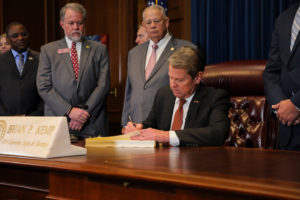Rules of the road: Governing big tech for wellbeing of kids
(The Daily Signal) – “Why expect our children to wear seat belts when we can ask everyone to drive responsibly?”
Americans are smart enough to recognize that as crazy talk, so much so that…

(The Daily Signal) – “Why expect our children to wear seat belts when we can ask everyone to drive responsibly?”
Americans are smart enough to recognize that as crazy talk, so much so that we’ve implemented law enforcement nationwide to protect our families from dangerous behavior on the road.
On the digital highway, however, commonsense precautions are nowhere to be found, and our children are suffering more than ever.
American children today spend twice as much time on social media as they do in the car, on average. And with each passing minute, our unregulated attention economy inundates their minds with obscenity, addiction, and other forms of exploitation.
Recognizing this should lead us to two sobering conclusions: Our society is asleep at the wheel and our children don’t have seat belts.
Earlier this year, a pothole in the form of a lengthy Wall Street Journal investigation of Instagram woke up many Americans. It found that the social media platform helps “connect and promote a vast network of accounts openly devoted to the commission and purchase of underage-sex content.”
Damning reports like these have been headlines for years, but the magnitude and escalation of harm finally is breaking into public consciousness. Like confronting drunken driving in the 1980s, private industry’s chronic failure to regulate itself provides a mandate to govern for the public good.
Parents today are making this clear as they continue to ask for plain, enforceable rules that align Big Tech’s incentives with the well-being of American families. The government has a moral duty to listen to them.
This duty is doubly true when companies have a profit motive to direct, by algorithms, sexual content to minors and pedophilic content to disturbed adults, as another report in the Journal last month revealed is most certainly the case at Instagram.
The Meta-owned network’s own employees reported that “preventing the system from pushing noxious content to users interested in it … requires significant changes to the recommendation algorithms that also drive engagement for normal users.”
According to the Journal’s review of company documents, Instagram’s management broadly bars the company’s own safety staff from “making changes to the platform that might reduce daily active users by any measurable amount.”
But we shouldn’t simply blame Instagram.
Big Tech’s gross negligence in failing to protect children is a direct result of a broken market that both sides of the political aisle have been unwilling to regulate; Big Tech itself has refused opportunities to self-regulate. To prioritize the safety of our children, policymakers must take responsibility for turning a blind eye to any meaningful guardrails for social media.
Children’s repeated exposure to addictive and explicit material is arguably as destructive as a car crash, yet policymakers continue to do nothing, almost as if they assume that the crisis of youth social neurosis is both inevitable and acceptable. It isn’t.
The good news is that it’s not too late to hold Big Tech accountable. But the proliferation of artificial intelligence, or AI, makes regulating social media companies all the more urgent. Because of that, policymakers should not let the perfect strategy be the enemy of good solutions to protect the public from exploitation. Our children need us to confront this threat seriously and immediately.
Thankfully, a growing movement for responsible tech governance is occurring across the country.
In November, 42 state attorneys general sued Meta, which also owns Facebook, for knowingly causing harm to children. About 45 states are investigating consumer protection concerns with TikTok, Montana has banned the Chinese-owned platform.
And Virginia is introducing legislation to bar it from minors. Eight states have implemented age verification laws to create actual barriers to online pornographic content.
While serving as U.S. attorney general, William Barr recommended reforming Section 230 of the Communications Decency Act of 1996 to remove liability protection for distributing criminal material on social media.
On Capitol Hill, the Kids Online Safety Act proposed by Sen. Marsha Blackburn, R-Tenn., would default social media platforms to opt children out of addictive features and protect their information.
Discussions are also underway regarding raising the minimum age for using social media to 16, requiring parental consent and oversight for the creation of youth accounts and enforcing age restrictions in mobile app stores.
These solutions represent a powerful effort by Americans to adjust the rules and align social media incentives with the well-being of our most vulnerable.
Here at The Heritage Foundation, we expect new legislation to be vehemently opposed by an industry that has benefited from decades of preferential treatment, but we are ready for the fight. (The Daily Signal is Heritage’s news outlet.)
Our children’s future is at stake, so we have no choice but to set new rules of the road.



